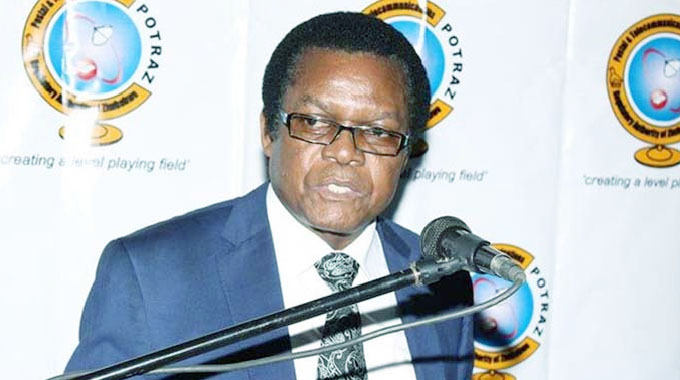Potraz to commission 800+ computer laboratories this year

Michael Makuza, Business Reporter
THE Postal and Telecommunications Regulatory Authority of Zimbabwe (Potraz) is targeting to commission and equip more than 800 school laboratories with computers and broadband services countrywide this year, an official has said.

Computers
The parastatal last year equipped more than 1 000 school laboratories with computers and broadband services, as it continues with efforts to improve connectivity and bridge the digital divide.
The programme is in line with the Second Republic’s thrust to leave no one and no place behind as it rallies to transform the country into an upper-middle-class economy by 2030.
Speaking during the commissioning of computer laboratories at 15 schools in Matabeleland South province last Friday, Potraz director general Dr Gift Machengete said the digitisation programme was important for the education sector as it capacitates learners with modern technology skills.
He said Potraz was equipping schools with computers as students need them to learn digital skills that are now needed across the spectrum as the entire world has gone online.
“For this year we have now done 72 laboratories including what we have done today. This year we want to reach 800 schools,” said Dr Machengete.

Dr Gift Machengete
“We are concentrating more on underserved areas so as to bridge the gap between the rural and the urban areas.”
Dr Machengete said focusing more on rural areas does not mean they are neglecting urban areas as they have been setting up community information centres to assist those who cannot afford to get access to information and communications technologies (ICTs).
“We are setting up these laboratories so that children are not left behind in terms of learning and access to information in both rural and urban areas,” he said.
The drive to create a digital compliant economy dovetails well with President Mnangagwa’s vision of leaving no one and no place behind, a development that has resulted in marginalised areas being uplifted.

President Mnangagwa
The commissioning of the computer laboratories is also part of the National Development Strategy 1 (NDS1), which recognises that the creation of a digital economy will be key in the realisation of national priorities and overall socio-economic development.

National Development Strategy 1 (NDS1)
NDS1 identifies ICTs as a key enabler of economic development and the entrenchment of ICTS across all national development strategies and as critical for the attainment of universal access by 2030.
Responding to questions concerning the telecommunications sector, Dr Machengete said the sector is resilient and expected to continue to stand its ground as it faces foreign currency challenges.
“Despite the challenges, especially the issue of foreign currency, which has meant that certain networks cannot be upgraded in time hence we end up with quality service issues but we think the future is bright for the sector.”











Comments